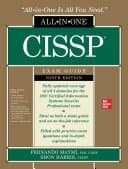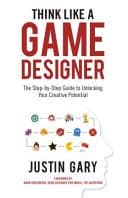Unmasking the Ties that Bind: A Deep Dive into 'Means of Control' by Byron Tau
Explore the unseen alliance between technology and government leading the US into a surveillance state in 'Means of Control'.
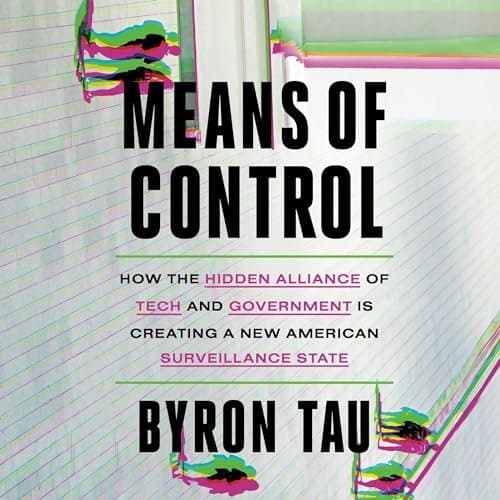
Books Featured in This Article
Explore the books discussed
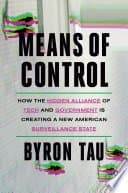
Unmasking the Ties that Bind: A Deep Dive into 'Means of Control' by Byron Tau
In the age of rapid technological advancement, the lines between convenience and control often blur, crafting a dystopian reality that hovers just on the edge of awareness. 'Means of Control: How the Hidden Alliance of Tech and Government Is Creating a New American Surveillance State', by Byron Tau, delves into this uncharted territory, compelling readers to consider the unnoticed shifts in power dynamics within society.
For many, the mere mention of a surveillance state conjures visions of Orwellian oversight, synonymous with a loss of personal freedom. Yet, this book argues, the present-day risks may be more insidious—wrapped in a shroud of bytes and bits, hidden beneath the surface of benign technological efficiency.
"As we embrace technological advances, we must also confront the encroaching gaze of surveillance, veiled within the fibers of our societal fabric."—Byron Tau
Peeking Behind the Digital Curtain
Forbes once said, "Technology is best when it brings people together," but what happens when it becomes the very tool of control? Byron Tau tackles the unsettling alliance of tech and government, exposing a tapestry woven from the digital threads of surveillance.
Why pick up 'Means of Control'? Because amidst the flurry of technological advancement, the reader is given a magnifying glass to scrutinize the silent powers that steer our everyday lives.
- Discover how technology is not merely a tool but a weaponized frontier used by those in power.
- Explore real-world examples of surveillance masked as mundane data collection.
- Understand the policies shaping the landscapes of technological privacy and control.
"In a world where data is the new oil, what is the cost of freedom in a technologically governed society?"—Byron Tau
A Wake-Up Call or A Soft Whisper?
Some might say, "Knowledge is power," and Tau certainly delivers on that front. For readers who relish a good exposé, this book is as revealing as it is alarming. Through analytical prowess and meticulously researched case studies, Tau doesn't just narrate the present condition—he sends out a clarion call for awareness and action.
Whether you devour books in dog-eared paperback form or prefer the seamless integration of an audiobook during your daily commute, 'Means of Control' caters to varying habits, ensuring accessibility across formats.
"With each tap and click, we edge closer to convenience, and paradoxically, to potential exposure."—Byron Tau
The Book That Echoes Today's Concerns
Picture this: you're at the coffee shop, your phone vibrates. A notification alerts you of a promotion—another data-driven detail. While seemingly harmless, these interactions accumulate, each one a thread in the vast network of modern surveillance.
It is books like 'Means of Control' that encourage introspection about our daily lives. Are we actively choosing convenience over privacy? Or are we simply pawns in a game orchestrated by an unseen alliance?
"In the dance of democracy and control, who really holds the reins?"—Byron Tau
Why 'Means of Control' Matters
As a part of the modern reader's toolkit, this book functions as both guide and guardian. It shines a light on the shadowy corridors of tech innovation, where the government and corporations tread with purpose. Tau equips readers not only to question the present but also to anticipate future developments in surveillance.
The takeaway for the audience is profound: understanding is the first step to empowerment. By bridging the gap between ignorance and insight, this book becomes a pivotal read.
"To comprehend the mechanics of control is to fortify one's autonomy."—Byron Tau
With its seamless mix of storytelling and critical analysis, 'Means of Control' promises not just a reading experience, but a journey through the intricate web of modern surveillance.
Byron Tau invites you to look beyond the stream of status updates and digital notifications, urging a re-evaluation of the dynamics at play in our tech-driven world. Are you ready to face the truth?
Key Takeaways
Pros
- Raises awareness about the impact of technology on privacy and governance.
- Provides insightful analysis and real-world examples of surveillance through technology.
- Serves as a guide to question and anticipate future developments in surveillance.
- Encourages readers to become informed, thus empowering them to protect their privacy.
Cons
- Highlights the insidious nature of surveillance, which might be unsettling for some readers.
- Presents a dystopian reality that may be perceived as alarming or overwhelming.
- Could induce a sense of paranoia or helplessness regarding personal data usage.
- May challenge readers' comfort with current technological conveniences.
Frequently Asked Questions
About the Author

Book Junkie
Your go-to source for book reviews and recommendations.
You Might Also Like
Related Books
Related Articles
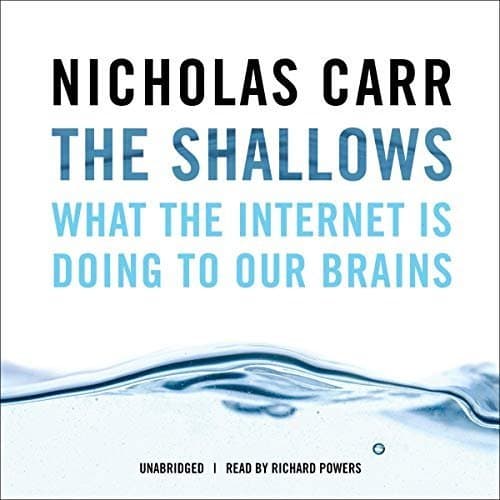
Navigating the Digital Torrent: Unlocking Insights from "The Shallows" by Nicholas Carr
Explore how the internet reshapes cognition in Nicholas Carr's "The Shallows," unraveling its profound effects on our brains and attention spans.

Modern Software Engineering: Accelerate Your Success in 2023
Discover strategies to enhance software development efficiency and effectiveness with David Farley's insights on building better software faster.

Mastering Cybersecurity: Unlock Your CISSP Certification with All-in-One Guide
Comprehensive guide for conquering CISSP, equipping readers with essential strategies and knowledge to excel in cybersecurity certification.
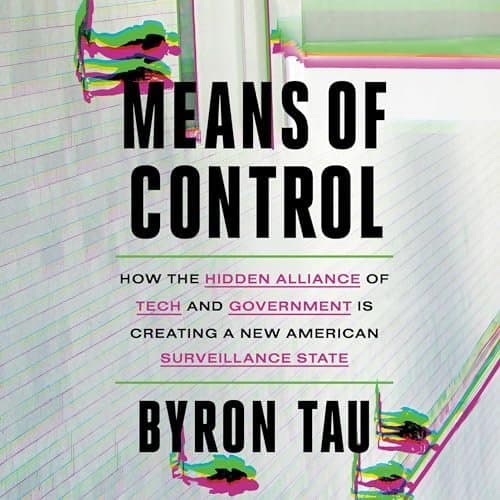
Unmasking the Ties that Bind: A Deep Dive into 'Means of Control' by Byron Tau
Explore the unseen alliance between technology and government leading the US into a surveillance state in 'Means of Control'.

